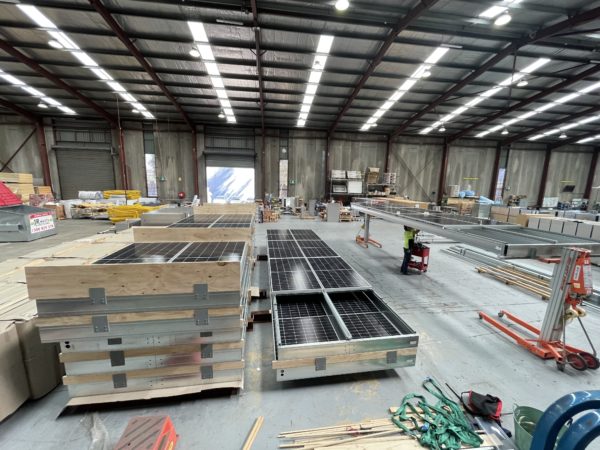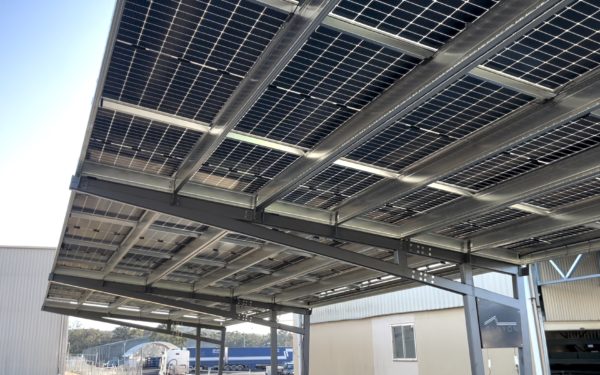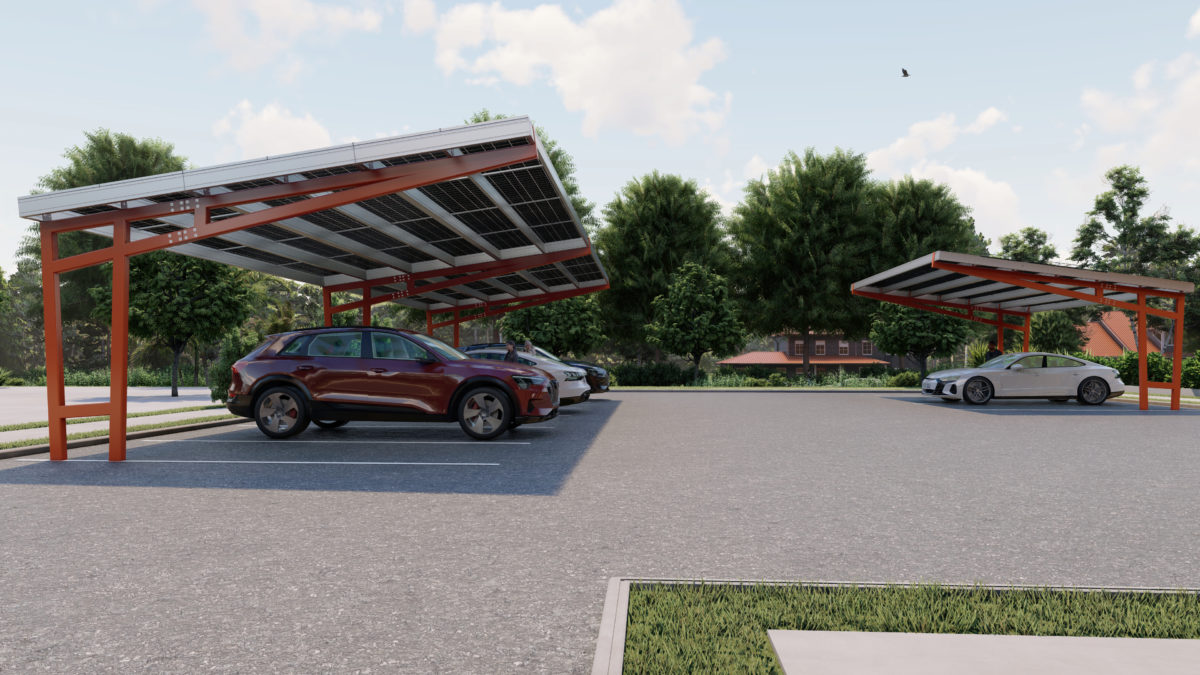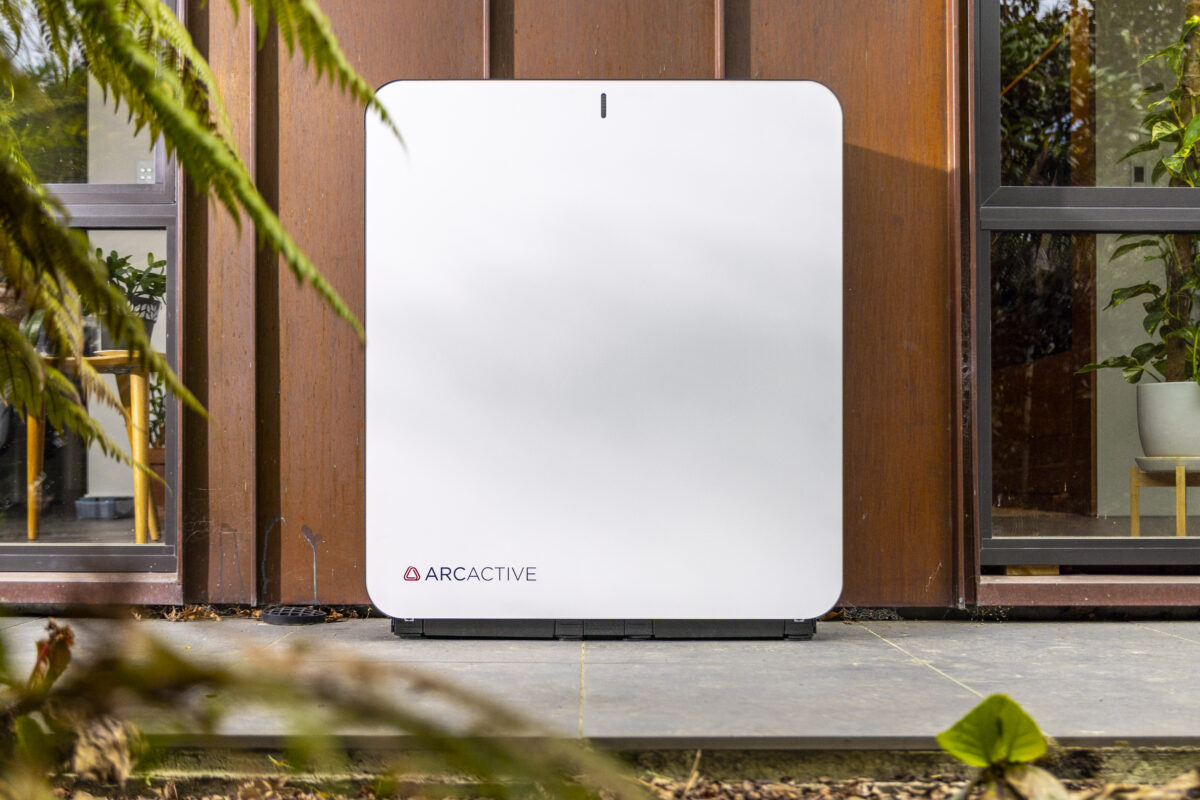Sydney-based manufacturer Canyon Solar has launched a modular solar carport solution for commercial applications that has been specifically designed for rapid installation with company director Will Beaumont claiming the time saving translates into a significant reduction in site labour requirements and a corresponding cost saving for clients.
“We found with the second prototype that we just finished installing in the Southern Highlands that we’re cracking three times faster installation compared with an in-situ system,” he said. “If you’re deploying it three times faster than an in-situ installation, there is quite a good labour saving in there which we are passing on to the client.
“The labour component is typically 40% of the turnkey costs of the system so it translates to about a 20% cost saving on labour.”
Canyon’s modular solar shade structure is built around individual pods, each measuring 7.5m long and 2.6m wide with two pods combined to create a single unit which covers three car park bays. The units can be deployed in series to give shelter to hundreds of vehicles, the manufacturer said.
Each individual pod houses six 660 W bifacial panels from Canadian Solar coupled with multi-string inverters from Sungrow but the structure is designed to easily incorporate components from other manufacturers. The waterproof system can be grid-connected, linked to storage and seamlessly integrates with electric vehicle charging hardware.

Image: Canyon Solar
The pods and steel support structures are pre-assembled in the factory and delivered to site where the pods are lifted into place atop the prefabricated columns and rafters. Final electrical connections are completed before the system is commissioned.
“Basically 80% of the work is done before arriving at site,” Beaumont said. “All the modules on the pods are already installed, they’re wired, the waterproofing system is actually incorporated into the module mounting system so that is already done as well.
“The idea is when you go to install it, all you’re doing is erecting the columns and the rafters are attached to that. You are then basically just using a forklift or a telehandler to lift the pods into place and finishing off the final connections.”
Beaumont, who established Canyon Solar after time spent with C&I solar heavyweight Solgen Energy, said the modular shade structures provide a cost-effective alternative to traditional cloth or membrane-based shade structures and rooftop solar PV installs.

Image: Canyon Solar
“If you’re trying to sell solar just on solar, carpark systems don’t make sense because there’s a lot of extra costs in terms of the foundations, the support structure, all those components,” he said. “But when you look at what a traditional shade cloth costs and what rooftop solar PV costs, which is usually $1.20 per watt, when you combine those two budgets, our solar shade structure actually costs less.
“When you subtract what a normal shade structure will cost, our effective solar costs is usually between $1.10 and 1.20 per watt.
“If you are already considering putting shade in the car park, solar shade is actually better than rooftop solar in many cases. And that is from a dollar-per-watt perspective.”
Canyon Solar is yet to secure its first commercial project but Beaumont said the company is in negotiations with “a number of shopping centres and universities” with the first of the installations expected to be completed before the end of the year.
“I’m very optimistic that modular solar shade structures will become a big part of the future solar industry,” he said. “We’ve now hit the point where it is commercially better to install a solar shade structure than a traditional membrane-based shade cloth in most commercial carparks.”
This content is protected by copyright and may not be reused. If you want to cooperate with us and would like to reuse some of our content, please contact: editors@pv-magazine.com.









6 comments
By submitting this form you agree to pv magazine using your data for the purposes of publishing your comment.
Your personal data will only be disclosed or otherwise transmitted to third parties for the purposes of spam filtering or if this is necessary for technical maintenance of the website. Any other transfer to third parties will not take place unless this is justified on the basis of applicable data protection regulations or if pv magazine is legally obliged to do so.
You may revoke this consent at any time with effect for the future, in which case your personal data will be deleted immediately. Otherwise, your data will be deleted if pv magazine has processed your request or the purpose of data storage is fulfilled.
Further information on data privacy can be found in our Data Protection Policy.